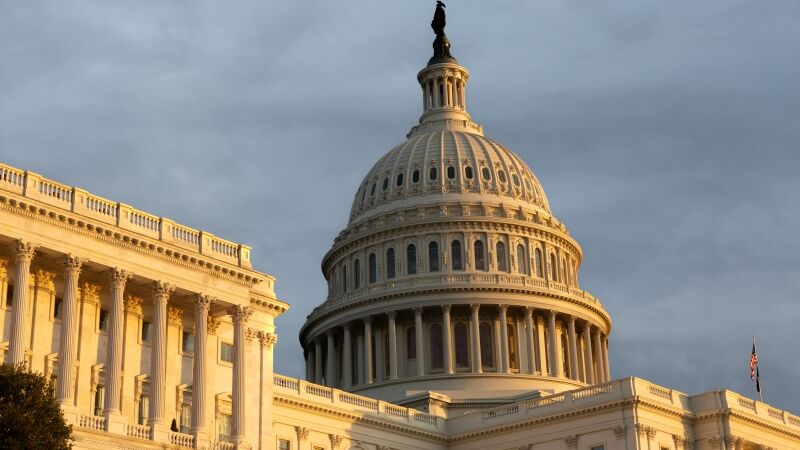In the ever-evolving landscape of US bank regulation, the incoming Trump administration is poised to shake things up — but what areas will be impacted most?
As with other parts of the regulatory framework in the United States, banks may receive a welcome boost to their fortunes under a new Trump administration from reduced capital requirements and increased focus on innovation, digital assets, and fintech, analysts said.
While few things are certain in predicting the path of future regulation, the leadership at the U.S. Federal Reserve is expected to remain in place — for now. However, new regulators are expected to lead the Office of the Comptroller of the Currency (OCC), the Federal Deposit Insurance Corporation (FDIC) and the Consumer Financial Protection Bureau (CFPB). Let’s look at the impact on each of these agencies in turn.
Federal Reserve: What happens with Basel Endgame
The Fed is focused on the Basel Endgame, which involves capital increases for the largest US banks. Despite Fed vice chair Michael Barr’s high-level overview to address concerns, a final plan is still pending. As a final proposal will need to be endorsed by the OCC and FDIC, others shared skepticism over the plan’s future and how it might be watered down even further.
“The Basel endgame rule could be completely dead,” Gene Ludwig, a former top bank regulator who advises financial institutions as CEO of Ludwig Advisors.
A client analysis from consulting firm PwC, said new regulatory leaders will likely impact the fate of the rule. “New agency leaders will also be able to modify or table rulemaking that has not been finalized before they take over, such as Basel III Endgame, which had a planned re-proposal that has not yet been issued and will likely go back to the drawing board for further relief.”
The one certainty is that Fed chair Jerome Powell would fight any attempt to remove him before his term ends in 2026. When asked right after the election whether he would step aside if President-elect Trump asked him to resign, Powell simply said: “No.”
OCC: Crypto assets & fintech bank review
During his campaign, Trump has highlighted the merits of crypto assets, even promoting a new venture set up by some of his longtime business partners and backed by his sons. Not surprisingly, the crypto industry has hailed Trump’s election as a win for digital currencies. Industry executives anticipate a shift in policy and the attitudes of US regulators, following a Democratic administration that was seen as more hostile to the alternative assets.
Michael Hsu, the acting head of the OCC, is expected to step down, and among those being considered for the short list of top bank regulators is Michelle Bowman, a Fed governor and former community banker who has criticized capital hikes led by her colleague Barr and made the case for easing bank rules and supervision. “The first reaction of regulators to proposed innovation in the banking system is often not one of openness and acceptance, but rather suspicion and concern,” Bowman said in a speech earlier this year. “The use of emerging technology and innovation may require a change in policy or supervisory approach.”
Whether a new OCC regime will revisit the special charters first floated by the OCC under the first Trump administration remains to be seen. What is clear is that the environment for fintech applications and bank mergers should improve when compared to the OCC’s recent record.
FDIC: Resolving future bank failures
The regional bank failures in 2023 have raised questions about banks’ contingency funding plans as well as the FDIC’s response. Indeed, the failures of Silicon Valley Bank and Signature Bank placed substantial liquidity demands on the FDIC, and while the agency initially met these demands through borrowings from the Fed, it did not pay off the borrowings in full until nearly nine months later.
“The unprecedented nature of these borrowings, and the substantial cost incurred, have raised a number of questions,” stated an analysis from Bank Reg Blog, a widely followed industry publication. “Will there be a concerted effort to reexamine certain of the FDIC’s practices in relation to resolving failed banks?”
There are at least signs that an FDIC under new leadership might take an interest in these topics. There are two Republican members of the FDIC board — vice chair Travis Hill and director Jonathan McKernan — both of whom have been outspoken on the issue. “The FDIC has an obligation to minimize losses when resolving failed banks, and it is hard to argue we did that here,” Hill has said. In terms of leadership, Hill is seen as most likely to lead the FDIC.
Current FDIC Chair Martin Gruenberg, who has presided over a misconduct scandal that has engulfed the agency, has said that he would not leave the post until the Senate confirms a successor.
CFPB: New rules at risk
Under the last Trump administration, Trump’s first CFPB director, Mick Mulvaney, was a vocal critic and opponent of the agency.
A client note from the law firm McGlinchey, noted that with the Republicans retaining control of the House of Representatives and thereby taking complete control of Congress, “President-elect Trump may be able to utilize the Congressional Review Act to roll back certain rules published by the CFPB.”
The Congressional Review Act requires executive agencies to report new rules to Congress and then gives Congress 60 days to legislatively override such rules. That tends to be a high burden, as it requires a majority of both the House and Senate. Nevertheless, it is possible that in a Republican-controlled Congress, the Trump Administration would attempt to overturn recently finalized (or soon-to-be finalized) CFPB rules.
In fact, industry experts have identified several rules at risk or subject to substantial revision under a Republican-led agency. According to law firm Husch Blackwell, these are likely to include:
-
-
- Section 1033 — The CFPB released its final “open banking rule” on October 22, the culmination of an eight-year process spanning three presidential administrations.
- Section 1071: Small business data collection — The rule is in the implementation phase, but litigants have challenged the rule in federal court.
- Overdraft and NSF fees — Given the critical posture of the industry toward both rulemakings, it is possible, or even probable, that new leadership would delay the implementation of one or both rules while it considers whether to revoke them.
-
Given the new landscape for federal banking regulation and rulemaking, it’s likely that the financial services industry is in for some stark — yet in some cases, welcoming — changes when the new Trump administration takes over.
You can find more about the challenges that financial institutions are facing here.







